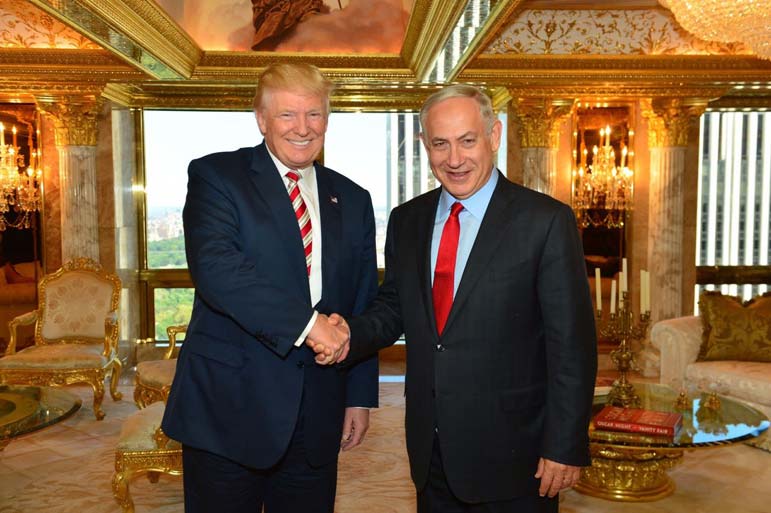
WASHINGTON --- On the eve of the first summit between President Donald Trump and Israeli Prime Minister Benjamin Netanyahu, the White House late Tuesday appeared to back away from the long-standing U.S. advocacy of a so-called two-state solution for peace between Israel and the Palestinians.
"A two-state solution that doesn't bring peace is not our goal that anybody wants to achieve," a senior White House official said in briefing reporters ahead of the Netanyahu meeting.
U.S. policy, and that of most international groups, for decades has considered a two-state solution, where Israel and a Palestinian nation live side-by-side, as the essential basis for peace in the troubled region.
But the official, who spoke to reporters under rules that did not allow him to be identified by name, cast doubt on that.
Asked if peace didn't equal a two-state solution, the official said, "Maybe, maybe not."
"It's something the two sides have to agree to," the official added. "It's not for us to impose that vision."
"Peace is the goal, whether it comes in the form of a two-state solution if that's what the parties want or something else, if that's what the parties want, we're going to help them," the official said.
The statements were the latest fluctuation in what seems to be an evolving Middle East policy for the new administration.
Initially, Trump took hard-line positions on Israel, refusing to condemn the expansion of settlements in West Bank land claimed by the Palestinians and vowing to move the U.S. Embassy from Tel Aviv to Jerusalem.
Relocation of the embassy is controversial because Israelis and Palestinians claim Jerusalem, or parts of it, as their capital.
Trump also said he would turn over the Israeli-Palestinian portfolio to his son-in-law Jared Kushner, a longtime supporter of Israel. He has nominated as his ambassador to Israel one of his lawyers, David Friedman, a passionate financial backer of settlements, which much of the world consider illegal and an impediment to peace.
More recently, however, the administration dropped talk of moving the embassy, at least in the short term, and issued a statement that was critical, albeit mildly, of settlements.
Trump has said he wants to make peace in the long conflict, the "ultimate deal." Administrations over the years have been stymied in similar goals. Peace talks have been at an impasse for several years.
Trump and Netanyahu are eager to show an improved relationship following eight frosty years with the Obama presidency. But experts have also warned that Trump should be careful not to risk provoking Arab states whom he needs in the fight against the so-called Islamic State terror organization and as counterweight to Iran.
The White House official said Trump and Netanyahu, in their summit today, will discuss settlements, an embassy move and Iran.
Tracy Wilkinson
Tribune Washington Bureau
(TNS)


 Contact The Editor
Contact The Editor
 Articles By This Author
Articles By This Author